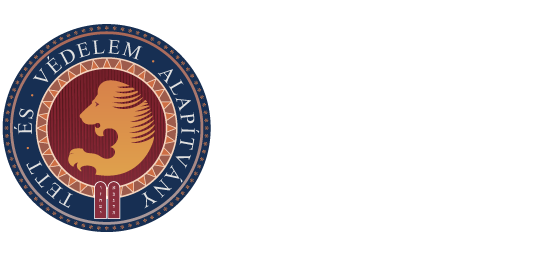(eng) Hungary: Holocaust Denial, Incitement and Intimidation
 “The TEV organization – whose name translates as the Action and Protection Foundation – was created in 2012. Its founders are the three major Jewish communities, the Unified Hungarian Jewish Congregation EMIH (Chabad-affiliated) to which I belong, the Federation of the Jewish Communities in Hungary — Mazsihisz which is Neolog — and the Sim Shalom reform community. The need for such an organization was felt because in Hungary there were no data on anti-Semitism suitable for comparative analysis.
“The TEV organization – whose name translates as the Action and Protection Foundation – was created in 2012. Its founders are the three major Jewish communities, the Unified Hungarian Jewish Congregation EMIH (Chabad-affiliated) to which I belong, the Federation of the Jewish Communities in Hungary — Mazsihisz which is Neolog — and the Sim Shalom reform community. The need for such an organization was felt because in Hungary there were no data on anti-Semitism suitable for comparative analysis.
“TEV began to monitor attacks on Hungarian Jews according to four criteria of the OSCE – physical crimes, hate crimes, hate speech which leads to action, and incitement. These are all criminal categories under Hungarian law. In addition, TEV also provides legal aid to victims of anti-Semitic acts.”
Daniel Bodnar is Chairman of TEV. He was born in Budapest in 1977 and studied at the ELTE University of Budapest. He received his M.A. in 1999. He was a Price Fellow at the New School for Social Research in New York in Political Philosophy.
“Currently, the main concern of Hungarian Jewry is anti-Semitic incitement and Holocaust denial in public discourse as well as the deterioration of public discourse. In the first round of the 2010 elections for the National Assembly, the extreme right wing and anti-Semitic party Jobbik obtained almost 17% of the votes. It‘s the third largest party with 47 out of 386 National Assembly seats. Several of its parliamentarians make extreme anti-Semitic statements.
“In the first six months of TEV’s monitoring activities, we brought 27 complaints to the police. Sixteen of them concerned Holocaust denial and 11 were about anti-Semitic incitement. We have not had any complaints about physical attacks.
“In Hungary, current laws against anti-Semitic incitement are among the best in Europe. The problem is that the authorities do not apply them. Even worse is that the former Constitutional Court ruled that only in cases of direct and clear danger is there a transgression of incitement laws.
“A complaint for incitement was filed against Jobbik Parliamentarian Marton Gyongyosi, who in 2012 said in the National Assembly that it was ‘time to assess . . . how many people of Jewish origin there are here, and especially in the Hungarian Parliament and government, who represent a certain national security risk for Hungary.’ The prosecution decided that this should not be considered incitement to hatred. This illustrates the shortcomings of the Hungarian judicial arena in dealing with major cases of anti-Semitic hate promotion.
“Along with this incitement for the past six or seven years, the quality of public speech has rapidly eroded. Hate speech has infiltrated the Hungarian Parliament and society’s public discourse. In the national education curriculum, one finds texts from writers who were Nazis. We were finally able to achieve with two other fellow negotiators from the Jewish community, that the new curriculum should include a directive that teachers must explain and contextualize that these were evil people. Together with the ADL, we succeeded in taking the Kuruc hate site off Facebook. It has not returned since then for periods of more than one or two days.
“An infrastructure of hate has been built up in Hungary. One does not know when and how it may blow up. Legislators must respond to the reality of the huge hatred which is promoted publicly. The current government of the majority right-of-center party Fidesz makes many symbolic gestures. Yet undoubtedly, it has different approaches and sensitivities to anti-Semitism than the previous socialist one. It is essential that any government goes beyond symbolic acts and provides the Jewish community with genuine legal tools to fight anti-Semitism.
“There are an estimated 100,000 to 120,000 Jews in Hungary. Almost all of them are either Holocaust survivors, or their descendants. Jews have been used politically in Hungarian politics for a long time. Socialists use the ‘Jewish card’ by saying that most Jews vote for them. This card is then usually played back by the right.
“In a society where many traumas from the past still exist, the extreme right brings up several claims. One concerns the stigma that during the communist regime many party leaders were Jews and most Jews supported the ruling party. Another one is that Jews are not loyal to the Hungarian state.
“One important problem is that the great majority of anti-Semitic incidents are not reported. People who lived under a communist regime have been silenced to a large extent, and this attitude continues until today.”
Bodnar concludes: “Current Hungarian anti-Semitism is mainly ideological and political. We realize that it can become very dangerous, but cannot forecast what it may lead to. Today, physical violence committed by the extreme right is primarily directed at the 600,000 weak members of the Roma community. Many believe that having a larger prime target deflects attacks away from Hungarian Jews. Yet the racism and violence worry us. The present situation provides no promise for a better future if the legal framework concerning the applicability of the law does not change.”
Manfred Gerstenfeld Interviews Daniel Bodnar, Chairman of TEV.
Via Arutz Sheva



